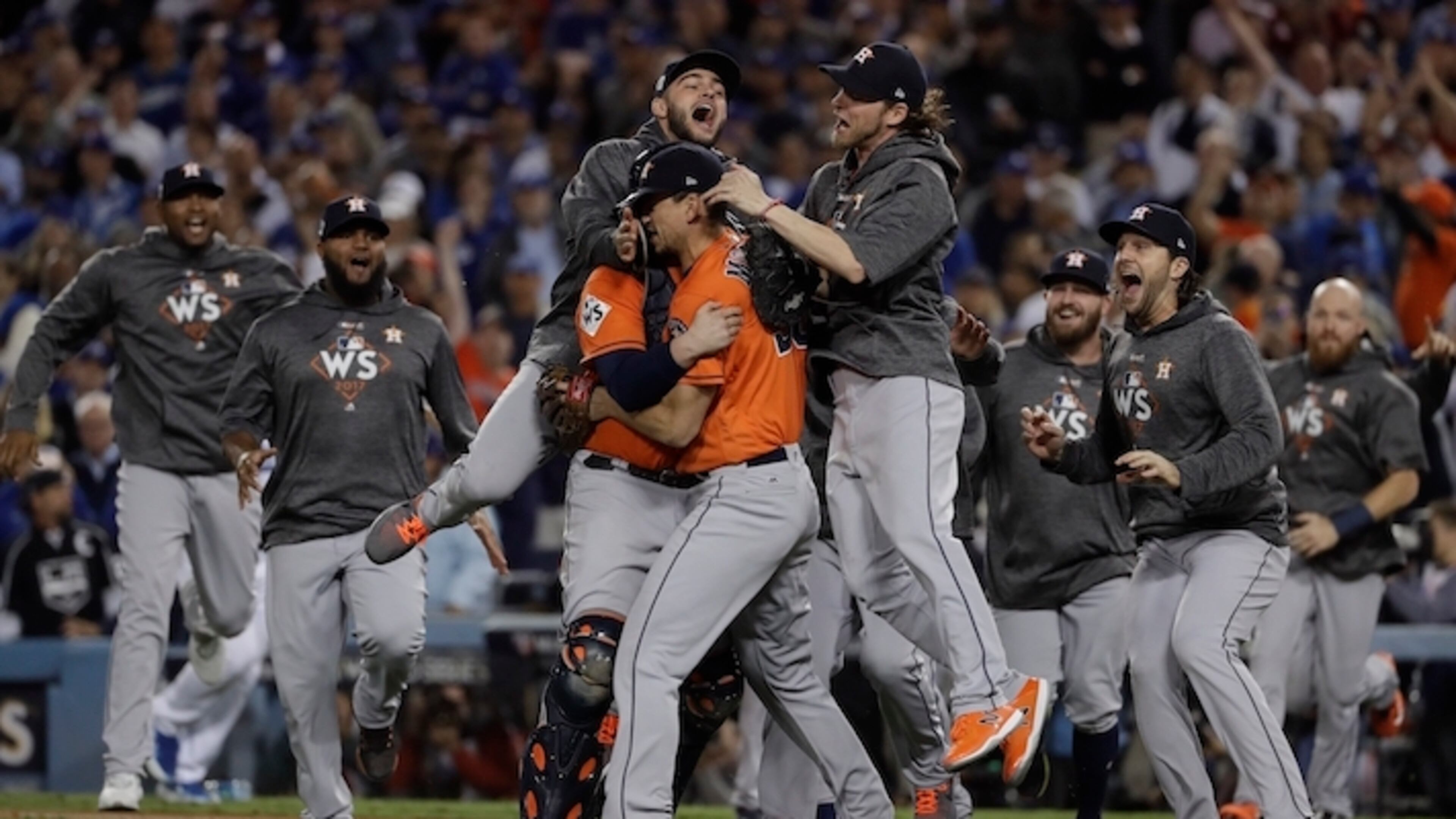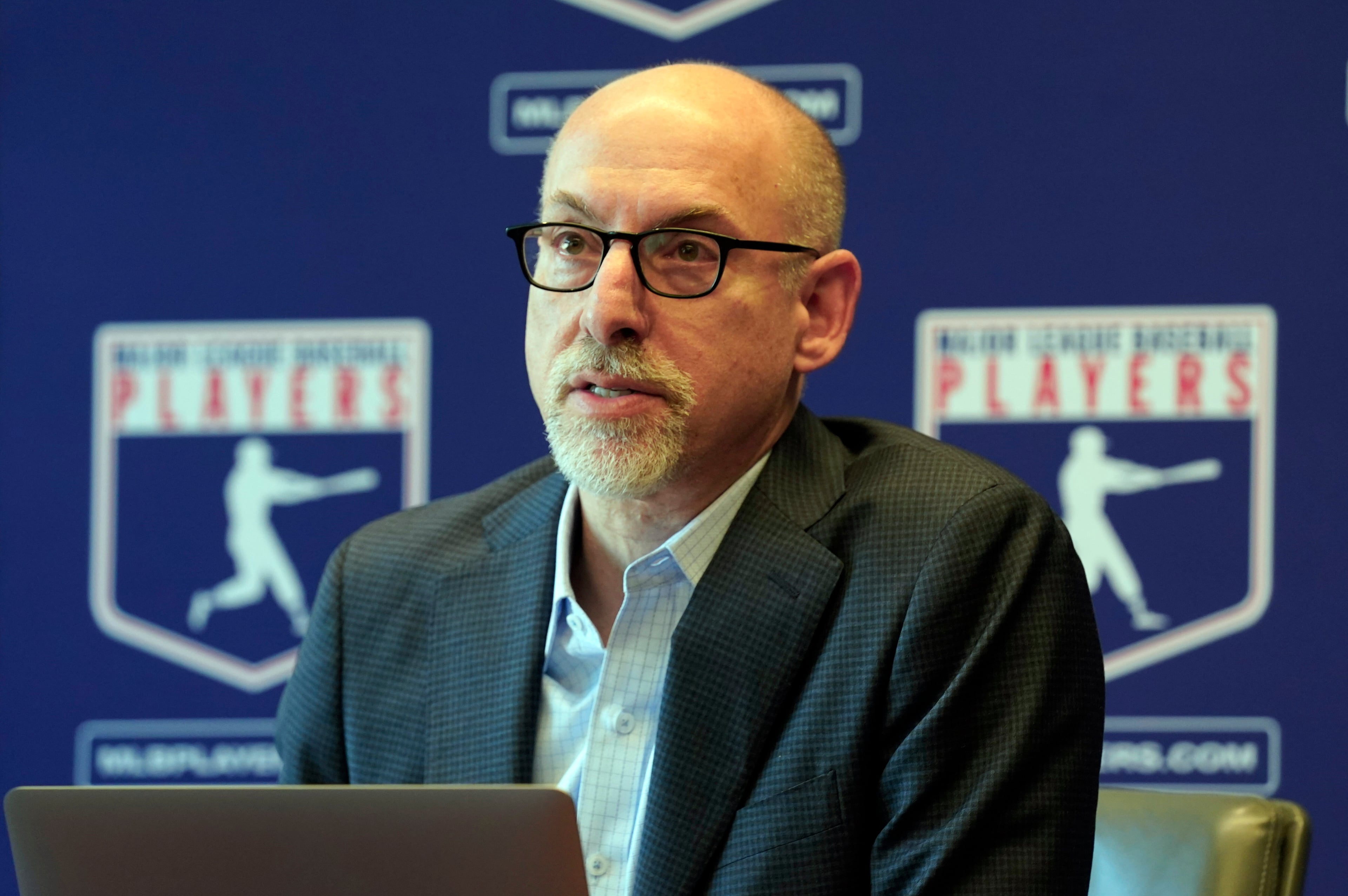Rebuilding can pay off, but also invites skepticism

Spring training was just starting for the Pittsburgh Pirates under a splendid Florida sky. It was the time of year when any team can feel optimistic, but on this morning, the team was still coming to terms with an offseason shakeup. Stars Andrew McCutchen and Gerrit Cole had been traded, and Josh Harrison — one of the team's top remaining players — was talking through his concerns with reporters.
"You just want to know where we stand as a team, where you stand as a player — what's expected of you, what's expected of the team. Sometimes that gets lost in translation, the human side of this game," Harrison said. "We all want to win. I'm not saying nobody wants to win, but when you feel it's not the main goal of everybody, whether it's in the clubhouse or dealing with the organization, that's hard to be a part of."
Later that day, general manager Neal Huntington held his own session with the media, saying of course the Pirates want to win — and indicating they weren't planning any sort of drastic roster teardown. But this offseason, Pittsburgh was one of a handful of teams facing a bit of a backlash .
Rebuilding — or, to use the less euphemistic term, tanking — has become one of baseball's most polarizing topics in 2018. When the Astros won the World Series last season, four years after a 111-loss debacle, they became a shining example of how short-term pain can lead to long-term gain, but as other teams try to follow Houston's lead, they're being met with varying degrees of skepticism.
Even from one of the key members of the champion Astros.
"It's a hard path to follow I think. Both the Cubs and ourselves, we had some really good players in house. It's not easy to just hit on draft picks year after year," Houston left-hander Dallas Keuchel said recently. "Some of these teams you're going to see crumble because it's not going to work for everybody."
Tanking may be replacing performance-enhancing drugs as the baseball's most sensitive subject. Players have been on edge over the slow free agent market, with union head Tony Clark accusing teams of "a race to the bottom" that he said threatens the game's integrity.
Commissioner Rob Manfred has had to push back on behalf of his teams.
"I don't buy into the concept that when a club adopts a strategy of rebuilding, that that should be characterized as tanking," he said. "I think that our clubs, all of them, want to win. That's why the owners own, that's why the clubs play the game. The question is: What strategy are they going to adopt, over what period of time, to put themselves in a position to win?"
When the Astros won the World Series, it wasn't just a victory for Houston. It was victory for those who embrace patient rebuilding — or, to steal a line from Philadelphia 76ers fans, a victory for trusting the process.
From 2011-13, the Astros lost 106, 107 and then 111 games. Attendance dropped, but that awful stretch yielded high draft picks — and a chance to work with a clean slate with minimal financial commitments.
Now Houston has a championship, plus a core of players in their 20s who could keep this team in contention for years. The Astros' blueprint worked.
"If you have a longer-term perspective, it probably makes some sense," said Sandy Alderson, general manager of the New York Mets. "The greatest deterrent to that strategy in the past were the fans, and the fans have become more knowledgeable, more appreciative of farm systems, and they have a longer-term view as well. So at least with respect to some period of time, fans have accepted the (idea) that that's the best way to get better in the long run."
Huntington, however, said the Pirates don't want to test their fans' patience. They want to put a good team on the field — and as much as players recoil at the thought of a rebuild, it's not that easy on executives either.
"I guess in theory, 50-year-old men in pleated pants have a longer shelf life than a player might, but if we don't win, we get fired," Huntington said.
Rebuilding isn't a new phenomenon, of course. Some teams have little choice, like the Phillies when their stars declined earlier this decade. Or the Tigers, who have faced a similar predicament of late.
"We had to go all-in in a full rebuild. I think the majority of people understood that," Detroit general manager Al Avila said. "I think the majority of people wanted that — wanted to see that. I think the shock came when it became true."
Detroit has credibility with fans after spending big for a decade. Payroll is a touchier subject in Miami. The Marlins have won two World Series but are probably best known for dismantling their roster with alarming frequency.
A new ownership group in Miami is under pressure to show the future will be different, but this past offseason felt like more of the same. The Marlins slashed payroll, trading slugger Giancarlo Stanton to the Yankees.
With the season now starting, Manfred can hope the reality on the field will calm concerns about any proliferation of rebuilding teams.
"I looked a year ago about what people were saying about who was trying to win," Manfred said. "If you go back and look at the newspaper articles at that time, you will find articles saying that Arizona, Colorado, Milwaukee and Minnesota all did not do enough during the offseason to try to win."
All four of those teams contended for the postseason, and three of them made it.
But this offseason certainly felt different. In February, the players' union filed a grievance against the Pirates, Marlins, Athletics and Rays, accusing them of failing to spend revenue-sharing money appropriately. Major League Baseball said it believed the complaint was without merit, but trust is clearly in short supply.
Now it feels newsworthy when a team has a poor season — and doesn't hit the reset button. San Francisco finished tied with Detroit for the worst record in baseball last year, but the Giants figured they could rebound quickly. They acquired McCutchen and Evan Longoria in trades.
Another team at a bit of a crossroads is Toronto, which slipped to 76-86 last season. The Blue Jays no longer have Jose Bautista — he's still a free agent, in fact — and they didn't make any huge additions. But they still have Josh Donaldson, Troy Tulowitzki and a Marcus Stroman-led rotation.
No tanking in Toronto. Not yet, at least.
"There's a few teams, I think, whose fan base might not allow it, and I hope that we're one of those teams," left-hander J.A. Happ said. "It should be that way. You should be trying to contend and be a part of it every year. I'm happy to be on a team that's anxious to do that."


